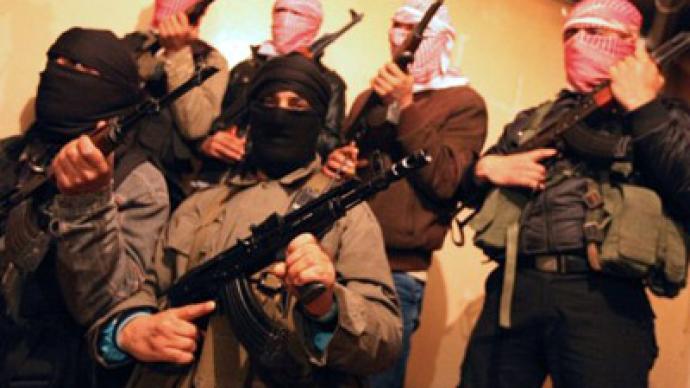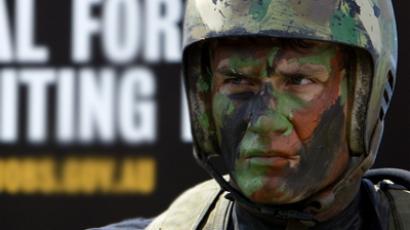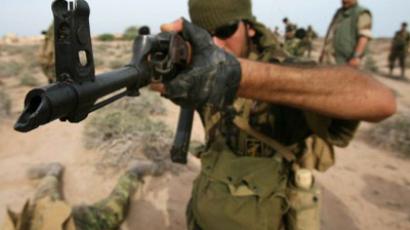Up in arms: ‘Iraqi Jihadists and weapons flow to Syria’

Jihadists are flocking to Syria from neighboring Iraq and weaponry is being sent across the border to support anti-Assad movement in the country, Iraqi Deputy Interior Minister Adnan al-Assadi has announced.
In his interview to AFP news agency, Adnan al-Assadi said that Iraqi authorities have intelligence information that a “number of Iraqi Jihadists” had gone to Syria to take part in the protest movement. He added that his country also sees the major outflow of weapons towards its neighbor. A strong indicator of weapons smuggling is, according to the deputy minister, the sudden and steep hike in prices on the Iraqi side of the border.“The weapons are transported from Baghdad to Nineveh province, and the prices of weapons in Mosul [city] are higher now because they are being sent to the opposition in Syria,” said Adnan al-Assadi. The official added that in the province bordering Syria, the price of a Kalashnikov assault rifle has recently risen from between $100 and $200 up to $1,500. "The weapons are being smuggled from Mosul through the Rabia crossing to Syria, as members of the same families live on both sides of the border," Adnan al-Assadi added. There is also some smuggling ongoing through a crossing near the Syrian city of Abu Kamal, he claims. The Syrian government has long claimed that the opposition was being largely helped by foreigners. In a recent development, Al-Qaeda has voiced its support to the Syrian opposition, urging Muslims across the Middle East to aid the Syrian uprising. According to The Guardian, Turkey comes as probably “the most significant outside player” against the current regime in Syria. The country hosts the opposition Syrian National Council and allows a “safe haven” for the Free Syrian Army. Syrian opposition sources say they receive weapons coming from the territory of Turkey and Jordan, The Washington Times newspaper reports. The Syrian officials recently handed to another neighbor, Lebanon, a list of individuals allegedly involved in border smuggling of people and weapons “for destructive acts on the territory of Syria”. Syria asked its neighbor to tighten border controls between the two countries. According to Israeli website depka.com, known for his links with intelligence, UK and Qatari troops are largely involved with the battle for Homs on the side of the opposition. Adnan al-Assadi’s statement comes amid increased tensions over the Syrian crisis. On Saturday Syria told Libya and Tunisia to close their embassies in Damascus within 72 hours. The development follows Libya and Tunisia demanding that Syrian diplomats depart. The United States closed its embassy in Syria on Monday, promising further pressure on Bashar al-Assad to step down. A number of the European countries including the UK, the Netherlands, Italy, France and Spain followed the suit days later. The six member states of the Gulf Cooperation Council also withdrew their ambassadors from the country, expelling the Syrians. Violence in the Middle Eastern country has been going on for almost a year, with anti-government groups fighting to remove President Bashar al-Assad from power. According to the UN, over 5,000 lives have been lost in the conflict.Meanwhile, the international community is stepping up pressure for harsher measures against President Assad and his regime. A recent UN draft resolution was vetoed in the Security Council by Russia and China, the two states that oppose foreign intervention into the country. According to Russia, the draft left out sanctions for the country’s opposition. Moscow believes that due to its imbalanced approach, the document could send the wrong signal to the conflicting sides.














